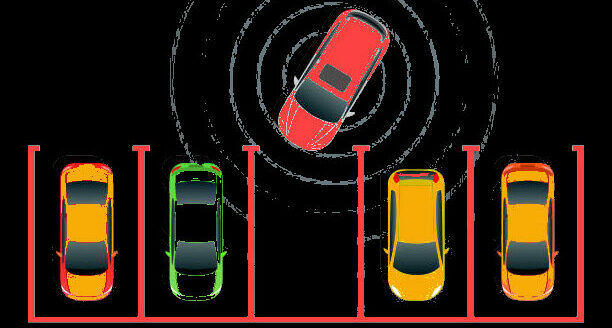Guide What is a Parking Sensor?
Parking sensors are advanced automotive devices designed to assist drivers in manoeuvring and parking their vehicles safely and efficiently. These sensors detect obstacles around the vehicle and provide real-time alerts, helping to prevent collisions with objects, pedestrians, or other vehicles.
How Do Parking Sensors Work?
Parking sensors typically use ultrasonic or electromagnetic technology to detect obstacles. Here’s a detailed look at how they function:
- Ultrasonic Sensors: These are the most common type of parking sensors. They emit ultrasonic sound waves that bounce off nearby objects and return to the sensor. The system calculates the distance to the object based on the time it takes for the sound waves to return.
- Electromagnetic Sensors: These sensors create an electromagnetic field around the vehicle. When an object enters this field, the sensor detects the change and alerts the driver.
- Sensor Placement: Parking sensors are usually mounted on the front and rear bumpers of the vehicle. Some advanced systems may also have sensors on the sides.
- Audible and Visual Alerts: When an obstacle is detected, the sensors trigger audible beeps that increase in frequency as the vehicle gets closer to the object. Many systems also provide visual alerts on the dashboard or infotainment screen, showing the proximity to the obstacle.
Benefits of Parking Sensors
Parking sensors offer numerous advantages that enhance driving safety and convenience:
- Enhanced Safety: By alerting drivers to obstacles that may be out of their line of sight, parking sensors help prevent collisions, protecting pedestrians, animals, and other vehicles.
- Easier Parking: Parking sensors make it easier to maneuver into tight parking spaces by providing precise distance measurements, reducing the stress of parking in crowded areas.
- Damage Prevention: These sensors help avoid minor but costly damages to the vehicle caused by bumps and scrapes during parking.
- Increased Awareness: Parking sensors improve overall situational awareness, helping drivers navigate complex parking environments with greater confidence.
Types of Parking Sensor Systems
There are several types of parking sensor systems available, each with its unique features:
- Front and Rear Sensors: Basic systems typically have sensors on the rear bumper, while more advanced systems include sensors on both the front and rear bumpers.
- Side Sensors: Some systems also include side sensors to detect obstacles at the sides of the vehicle, useful for parallel parking.
- Integrated Camera Systems: Many modern vehicles combine parking sensors with rearview cameras or 360-degree camera systems, providing a comprehensive view of the surroundings.
Installation and Usage
Parking sensors can be factory-installed by the vehicle manufacturer or added as aftermarket accessories. Here’s what to consider:
- Factory-Installed Sensors: These are seamlessly integrated into the vehicle’s design and come with the advantage of being tailored to the specific model’s dimensions and electronics.
- Aftermarket Sensors: These can be installed on most vehicles by professional installers. They offer flexibility and can be a cost-effective way to add this functionality to older vehicles.
Common Issues and Maintenance
While parking sensors are generally reliable, they can occasionally face issues such as:
- False Alerts: Sometimes, sensors may give false alerts due to dirt, ice, or snow covering them. Regular cleaning of the sensors can prevent this.
- Sensor Malfunction: Sensors can malfunction due to wiring issues or physical damage. It’s important to have them checked and repaired by a professional if any issues arise.
- Interference: Electromagnetic sensors might experience interference from metallic objects or other electronic devices, which can affect their performance.
Conclusion
Parking sensors are a valuable addition to modern vehicles, significantly enhancing driving safety and convenience. By providing real-time alerts about obstacles, they help drivers park and manoeuvre their vehicles with greater confidence and precision. Whether factory-installed or added as aftermarket accessories, parking sensors are an investment in both the protection of your vehicle and the safety of those around you. Understanding how they work and their benefits can help you make the most of this advanced technology, making your driving experience safer and more enjoyable.
Buying a used VW. Buying used vauxhall, BMW, Jaguar, Ford, Volvo, Range rover, Bentley, Aston Martin, Porsche, Ferrari, Lamborghini, Maserati, Hyundai, Tesla, Honda, Pagani

